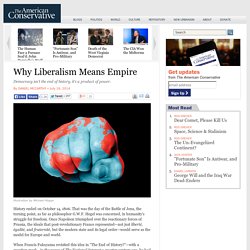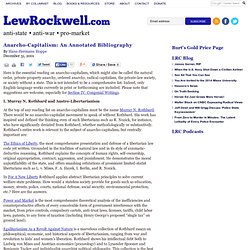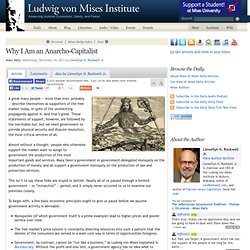

At the High End, Investment Success Is Luck. Depending on which economist you ask, big inequalities in wealth are either an essential engine for growth—the reward that motivates people to work hard, innovate, and prosper—or a ticking time bomb capable of unleashing mass misery, social upheaval, or even violent revolution.

The academic researchers who study inequality are forever arguing about where that tipping point lies, and how much inequality is too much. Many observers wonder if we’ve begun to tip already, pointing to the surprisingly strong support enjoyed by the avowed socialist Bernie Sanders in the recent United States presidential election. But what no one can deny is that in many countries around the globe, inequality has reached eye-popping extremes. In the U.S., for example, the top 1 percent of the population holds 42 percent of the national wealth. And the top 100 individuals now have an average wealth roughly 45,000 times the national average. Research Summary - Research on Innovation. Research SummaryHow Computer Automation Affects Occupations: Technology, jobs, and skills FULL TEXT PDFBoston University School of LawLaw & Economics Working Paper No. 15-49by James Bessen Are computers causing technological unemployment?

Automation has become a concern not just for blue-collar manufacturing workers, but also for white-collar workers and even professionals. New computer programs, some using artificial intelligence, are taking over tasks of bookkeepers, bank tellers, clerks, and others. Why Computers Aren't Going to Steal Everyone's Jobs. Automation isn’t just for blue-collar workers anymore.

Computers are now taking over tasks performed by professional workers, raising fears of massive unemployment. Some people, such as the MIT professors Erik Brynjolfsson and Andrew McAfee, identify automation as a cause of the slow recovery from the Great Recession and the “hollowing out of the middle class.” Others see white-collar automation as causing a level of persistent technological unemployment that demands policies that would redistribute wealth. Quem paga impostos em Portugal? If Sweden and Germany Became US States, They Would be Among the Poorest States. The battle over the assumed success of European socialism continues.

Many European countries like Sweden have gained a reputation as being very wealthy in spite of their highly regulated and taxed economies. What is the stability and growth pact? Unintentionally, the Greeks have done themselves a favour. Soon, they will be out of the euro. Quanto custa a dívida da Grécia? Why Liberalism Means Empire.
History ended on October 14, 1806.

If you can't choose wisely, pick at random – Michael Schulson. We could start with birds, or we could start with Greeks.

Each option has advantages. Let’s flip a coin. Heads and it’s the Greeks, tails and it’s the birds. Calculated Risk. Economists used to be the priests of free markets—now they’re just a bunch of engineers. When the General Assembly of the United Nations meets at the end of September, it will vote on whether or not an independent body should investigate alleged war crimes committed by the government of Sri Lanka during its 26-year civil conflict.

The government of the newly elected president Maithripala Sirisena has insisted that a domestic truth and reconciliation commission—not unlike that instituted in post-apartheid South Africa—will be sufficient; but others disagree. Um ecossistema político-empresarial. Um ecossistemaAn ecosystem of.

Anarcho-Capitalism. Here is the essential reading on anarcho-capitalism, which might also be called the natural order, private-property anarchy, ordered anarchy, radical capitalism, the private-law society, or society without a state.

This is not intended to be a comprehensive list. Indeed, only English-language works currently in print or forthcoming are included. Please note that suggestions are welcome, especially for Section IV: Congenial Writings. Anarcho-Capitalism. Why I Am an Anarcho-Capitalist - Llewellyn H. Rockwell Jr. A great many people — more than ever, probably — describe themselves as supporters of the free market today, in spite of the unrelenting propaganda against it.

And that’s great. Those statements of support, however, are followed by the inevitable but: but we need government to provide physical security and dispute resolution, the most critical services of all. Almost without a thought, people who otherwise support the market want to assign to government the production of the most important goods and services. Many favor a government or government-delegated monopoly on the production of money, and all support a government monopoly on the production of law and protection services. The pope has been striking back against capitalism for more than a century - Quartz. Bitcoin Vs. South Sea Stock. This is just for fun, I have no idea if or when the bitcoin train will ever get derailed. You could compare this to any speculation that has gone parabolic, I just like ones that are over 200 years old.
Chart 1 is actual bitcoin and South Sea Stock values plotted with SS peak lined up with current BC data. Chart 2 takes the last 8 months and lines them up with similar starting points. Charles Bukowski reads The Secret of My Endurance. Who suffers the most? Europe’s austerity misery, ranked - Quartz. Huge crowds took to the streets in Rome this past weekend to protest a tough new budget presented by the prime minister. Similar scenes played out in central Lisbon. As the combination of spending cuts, wage freezes and tax hikes across Europe continues to bite, austerity fatigue has become deeply entrenched, regularly boiling over in protests and strikes.
New data (pdf) on European governments’ finances gives some context on the scale and scope of austerity in the region. Most notably, the new numbers revised up estimates of Ireland’s budget deficit while it cut them for Spain and Greece. As a share of GDP, the EU’s collective budget deficit was 3.9% in 2012, down by three percentage points from 2009. Si un graphique doit vous mettre mal à l’aise, espérons que cela soit. No país dos minijobs, a oitos euros à hora. Alemanha, 2013. Um país onde há subsídios para quem acabou o curso e ainda não encontrou emprego, mas onde um em cada cinco trabalhadores tem um minijob de 450 euros. A Fistful Of Euros. Give Back? Yes, It's Time For The 99% To Give Back To The 1% No país dos minijobs, a oitos euros à hora. The Nature and the Origin of the Subprime Mortgage Crisis. There has been a long term American policy of promoting home ownership. This entailed making the financing of home purchases as easy as possible. Various financial institutions were set up over time to make the securing of a mortgage quick and convenient.
There once were Savings and Loan Associations that were savings institutions which could only invest in home mortgages. Fannie Mae (the Federal Nation Mortgage Association FNMA) was set up in 1938 to provide a secondary market for home mortgages. This meant that if a bank granted a mortgage to someone and later the bank needed funds the bank could readily sell the mortgage to Fannie Mae. The Misallocation Of Credit In Japan. "The evergreening of bank loans for 'cosmetic purposes' was widespread, with banks more likely to increase loans to firms with weaker financial health. " In Unnatural Selection: Perverse Incentives and the Misallocation of Credit in Japan (NBER Working Paper No. 9643, commissioned for an NBER Project on Japan and originally presented at a conference in Tokyo), co-authors Joe Peek and Eric Rosengren investigate what they consider an important factor in the long-running economic stagnation in Japan: Japanese banks' practice of continually extending credit to very weak or even insolvent firms.
The authors maintain that in Japan's bank-centered economy, where banks often have responsibility for corporate monitoring and governance, many lending decisions are strongly influenced by a perceived duty to support troubled firms, rather than by the sort of credit-risk analysis practiced in the United States. Monetary Policy Hindered By Demographics. Ludwig von Mises Institute : The Austrian School Is Advancing Liberty. A Virtual Weimar: Hyperinflation in a Video Game World - Peter C. Earle. Perry Anderson · Lula’s Brazil · LRB 31 March 2011.